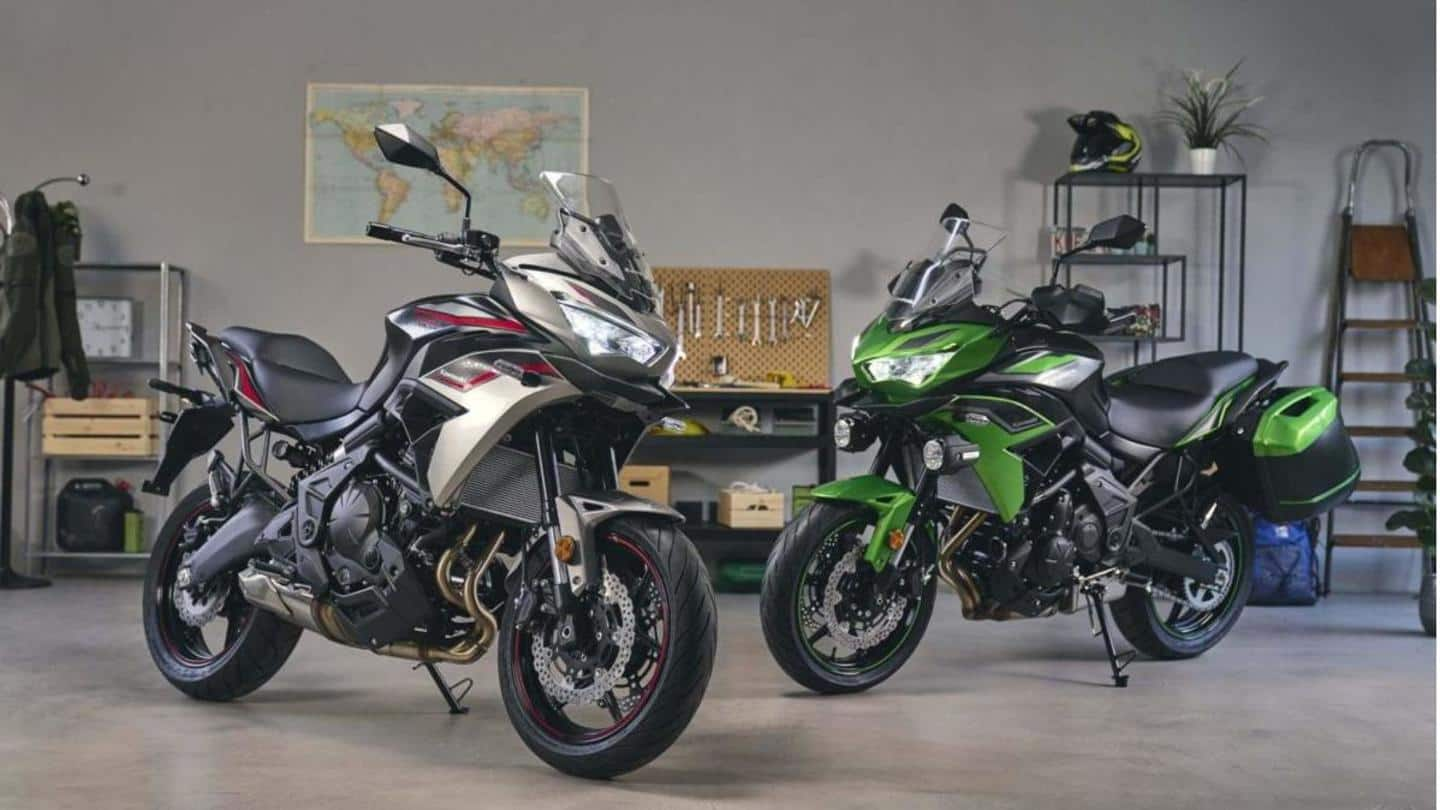
Kawasaki reveals 2022 Versys 650 and 650 LT motorbikes
What's the story
Kawasaki has showcased the 2022 iteration of its Versys 650 and 650 LT bikes at the EICMA 2021 in Italy.
They offer a few cosmetic upgrades and a host of new features, including an adjustable windshield and Kawasaki Traction Control function.
However, mechanically, they are the same as the previous-generation models, packing a 649cc, parallel-twin, liquid-cooled engine.
Here are more details.
Context
Why does it matter?
Kawasaki has introduced substantial upgrades for the Versys 650 range. The bikes now offer a full-color digital TFT instrument console and new bodywork. The 650 LT model gets some touring accessories as standard.
The motorcycles also come with traction control for the first time. All these updates make them more appealing than ever and will attract buyers in the mid-range segment.
Design
The TFT display can be connected to a smartphone
The 2022 Kawasaki Versys 650 and 650 LT feature an aggressive design with a twin LED headlight cluster, a muscular fuel tank, a 4-way adjustable windshield, and a stepped-up seat. The 650 LT variant also sports a quick-release saddlebag and handguards.
The bikes house a 4.3-inch fully-digital TFT instrument display which can be connected to a phone via the Kawasaki Rideology app.
Information
A 65hp engine fuels the bikes
The 2022 Kawasaki Versys 650 and 650 LT are powered by a 649cc, parallel-twin, liquid-cooled motor that makes 64.8hp of power and 60.7Nm of peak torque. Transmission duties are handled by a 6-speed gearbox.
Safety
Dual-channel ABS is provided for safety
The 2022 Kawasaki Versys 650 and 650 LT are equipped with disc brakes on both the front and rear wheels, along with dual-channel ABS and two-level traction control.
The suspension duties on the motorcycles are taken care of by a 41mm inverted fork on the front and a single offset laydown shock on the rear end.
Information
2022 Kawasaki Versys 650 and 650 LT: Pricing and availability
The pricing and availability information of the 2022 Kawasaki Versys 650 range is yet to be revealed. However, in India, the bikes will carry a premium over the current-generation models, which start at Rs. 7.15 lakh (ex-showroom).